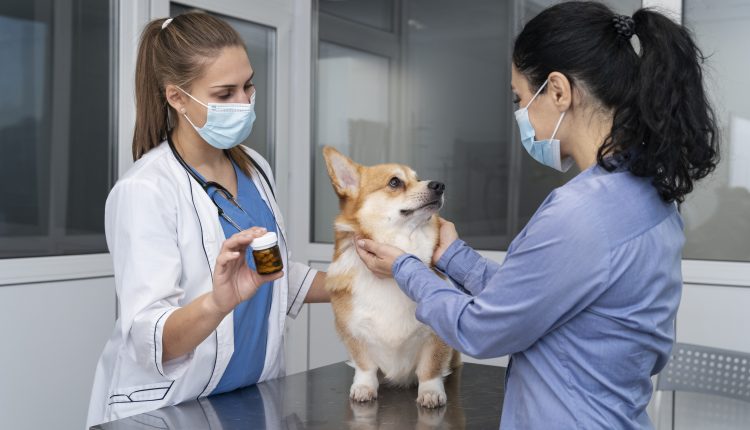How to Become a Pet Nutritionist: A Comprehensive Guide

Nutrition plays a crucial role in the health and well-being of pets, just as it does for humans. Pet owners want the best for their beloved animals, and that includes providing them with proper nutrition. This is where pet nutritionists come into play. Pet nutritionists are professionals who specialize in understanding the nutritional needs of animals, creating balanced diet plans, and ensuring that pets receive the best possible nutrition for their overall health. In this comprehensive guide, we will explore the steps to become a pet nutritionist, including education, certification, skills, and career opportunities in this exciting field.
Chapter 1: Understanding the Role of a Pet Nutritionist
Before delving into the steps to become a pet nutritionist, it’s essential to understand the significance of their role. Pet nutritionists are experts in animal nutrition, and their primary responsibility is to design dietary plans that cater to the specific nutritional needs of pets. Whether it’s dogs, cats, rabbits, or exotic animals, pet nutritionists ensure that they receive the right balance of nutrients to support their growth, health, and overall well-being.
1.1 Nutritional Needs of Pets
Different animals have varying nutritional requirements based on their species, age, size, and health condition. Pet nutritionists study the biology of animals and the science behind nutrition to create personalized diet plans. They consider factors such as protein, carbohydrates, fats, vitamins, minerals, and dietary fiber to formulate the ideal diet for each pet.
1.2 Health Benefits of Proper Nutrition
Proper nutrition is essential for preventing and managing common health conditions in pets. Pet nutritionists play a crucial role in preventing obesity, allergies, digestive disorders, and more. They also contribute to the overall longevity and quality of life for animals.
1.3 Collaboration with Veterinarians
Pet nutritionists often collaborate closely with veterinarians to address specific health concerns and dietary requirements for animals with medical conditions. This interdisciplinary approach ensures that pets receive holistic care.
Chapter 2: Education and Training
Becoming a pet nutritionist requires a strong foundation in nutrition science, animal biology, and related fields. Here are the essential steps to pursue a career in this field:
2.1 Undergraduate Degree
The first step towards becoming a pet nutritionist is obtaining an undergraduate degree in a related field. Most aspiring pet nutritionists pursue degrees in Animal Science, Biology, Dietetics, or a related area. These programs provide a solid foundation in biology, chemistry, and nutrition.
2.2 Graduate Education
Many pet nutritionists continue their education with a graduate degree in animal nutrition or a similar field. A Master’s or Ph.D. program allows for more specialized study and research in animal nutrition.
2.3 Additional Certifications
While not always mandatory, obtaining additional certifications can enhance your credentials as a pet nutritionist. Organizations like the American College of Veterinary Nutrition (ACVN) offer board certification for veterinary nutritionists. Certification from these reputable bodies can distinguish you in the field.
2.4 Gain Practical Experience
Hands-on experience is invaluable in the field of pet nutrition. Seek internships or work as a nutritionist assistant to apply your knowledge in real-world settings. Practical experience helps you understand the practical aspects of creating diet plans for pets.
Chapter 3: Pet Nutritionist Certification
Pet nutritionists often pursue certification to demonstrate their expertise and enhance their career prospects. While certification requirements may vary, here is a general outline of the certification process:
3.1 Eligibility
To become eligible for certification, candidates typically need to meet certain education and experience requirements. These requirements may include a relevant degree, coursework in nutrition, and a specified number of hours of practical experience.
3.2 Certification Exam
Most certifying bodies require candidates to pass a comprehensive exam that tests their knowledge of animal nutrition. The exam may consist of multiple-choice questions, practical assessments, and case studies.
3.3 Maintaining Certification
Certification is not a one-time achievement. Pet nutritionists are often required to participate in continuing education to stay up-to-date with the latest research and developments in the field. This ensures that they provide the most current and accurate nutrition recommendations.
Chapter 4: Skills and Knowledge
Pet nutritionists need a diverse skill set to excel in their careers. Here are some essential skills and knowledge areas:
4.1 Nutrition Science
A deep understanding of the principles of nutrition science, including macronutrients, micronutrients, and the physiological processes of digestion and metabolism, is crucial.
4.2 Animal Biology
Knowledge of animal biology, anatomy, and physiology is essential to tailor diet plans to individual animals.
4.3 Research Skills
Pet nutritionists often engage in research to develop evidence-based dietary recommendations. Strong research skills are valuable in this regard.
4.4 Communication Skills
Effective communication is key, as pet nutritionists need to explain complex dietary recommendations to pet owners and collaborate with veterinarians.
Chapter 5: Career Opportunities
Pet nutritionists have various career options to explore:
5.1 Private Practice
Many pet nutritionists work in private practice, offering consulting services to pet owners and veterinary clinics.
5.2 Employment with Pet Food Companies
Pet food companies employ pet nutritionists to develop and analyze the nutritional content of their products.
5.3 Research and Education
Some pet nutritionists pursue careers in research or education, working at universities or research institutions to advance the field of animal nutrition.
5.4 Government and Nonprofit Organizations
Government agencies and nonprofit organizations may hire pet nutritionists to contribute to animal welfare and nutrition-related initiatives.
Conclusion
Becoming a pet nutritionist is a rewarding career path for individuals passionate about the health and well-being of animals. By acquiring the necessary education, gaining practical experience, and obtaining certification, you can embark on a fulfilling journey in the field of pet nutrition. Whether you choose to work in private practice, with pet food companies, or in research and education, your expertise will make a positive impact on the lives of countless pets and their owners. Pet nutritionists play a vital role in ensuring that our furry companions receive the best possible care and nutrition throughout their lives.


Comments are closed.